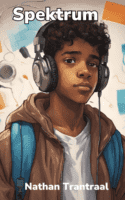A shark is a scary predator of the ocean. A predator is ‘an animal that hunts and eats other animals.’ In Shark Attack, a human predator is on the loose. His prey today are a carefree, fun-loving girl, or her more cautious friend. In Tracey Farren’s exciting story, the ‘prey’ fight back bravely, both physically and by using our police and laws. The story has an upbeat ending.
However, Shark Attack realistically shows some of the attitudes that give South Africa a reputation as a dangerous place for women. There are no accurate, recent rape statistics but Africa Check reports that the police figures for 2015/16 are 42 596 reported rapes. They also quote one 2010 study (by the Gauteng Gender Based Violence Indicators Project) which found that, in Gauteng, just over 25% of women reported having been raped and 37,4 % of men surveyed admitted to having raped a woman! All these figures are horrifying, especially because it is known most rapes are not reported, because of shame and fear, victim-blaming, and because so very few cases get convictions.
In the story, Yonela has recently experienced male violence, so she is wary of men. The animal metaphor of the story is expanded in her behaviour: she carefully judges handsome, charming Adrian. Her deep instincts are that he is predatory, dangerous. Nomkhita, however, is spontaneous, trusting, and eager to experience what life brings her way. She’s now living by the sea, so hey – why not take up the offer of a free wetsuit and surfing lessons? Especially from a handsome hunk! As she says later, she felt that Yonela was being bitter about men and ‘paranoid’ – seeing something that was not there.
Adrian and the male police officer both represent our sexist reality: the general attitude that says a woman or girl who agrees to be alone with a male, under any circumstances, deserves to be raped. She’s ‘asking for it’!
This attitude explains how, ‘Yes I’d like to borrow a wetsuit,’ in many male minds becomes code for, ‘Yes I agree to have sex with you’.
Let’s think of other common examples:
If a woman wears a mini skirt she deserves to be raped.
If a woman accepts a drink she’s saying yes to sex.
If a woman gets drunk she deserves to be raped.
If a woman walks alone at night/in a quiet place she must expect to be raped.
Or, as in the famous case involving Jacob Zuma, that the author refers to: ‘If a woman wears a kanga she is asking for sex.’
Men and woman are supposed to be treated equally according to our Constitution. But think about the scenarios listed above. Would anyone dream that a man was asking to be raped by … walking alone? Wearing shorts? Or taking up an offer of a wetsuit and surfing lessons? Would the police officer ‘victim blame’ such a man, if he was raped?
As Yonela tells her friend: “You were wise to know it doesn’t matter how you dress, it doesn’t matter even if you flirt outrageously! It’s not an invitation to rape. How dare they say it is?”
This story also shows how very important and empowering it is to know your rights. Nomkhita tells the police officer that he is asking the wrong questions and demands a female officer. We know that between them, the women will get Adrian arrested. Only if more rapists are arrested and punished will our ‘rape culture’ shift.
How nice it would be to end these comments by saying ‘Girls, know your rights! Don’t let a sexist society stop you doing whatever you want! You deserve to feel as safe as men.’ But we all know, at present, rather be like Nomkhita. Don’t be alone with a man you have just met. Don’t walk alone at night. Don’t party and get drunk with men you don’t know well.
It is your right to do all these things. But it is not safe. Be careful. We are not an equal society – yet.







